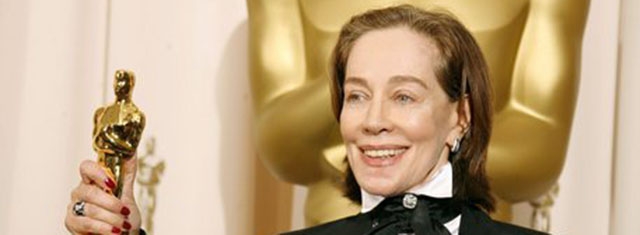Vips
ITALIAN COSTUME DESIGNER MILENA CANONERO WINS OSCAR FOR GRAND BUDAPEST HOTEL
PRIME MINISTER CONGRATULATES HER

Milena Canonero
USPA NEWS -
Premier Matteo Renzi on Monday hailed costume designer Milena Canonero's Oscar win for Wes Anderson's Grand Budapest Hotel.
"Congratulations to Milena Canonero, elegance, grace and talent at the Oscars," the premier tweeted after the Turin native was awarded what is her fourth statuette Sunday night in Los Angeles.
Canonero, a veteran stage and cinema costume designer, made her debut in Stanley Kubrick's iconic 1971 film A Clockwork Orange. She won her first Oscar four years later with Kubrick's Barry Lyndon.
She followed this up with Oscars in 1981 for Hugh Hudson's Chariots of Fire and in 2006 for Sofia Coppola's Marie Antoinette.
Grand Budapest Hotel took home three more Oscars at last night's awards ceremony, where Mexican writer and director Alejandro Gonzalez Iniarritu's drama Birdman won best picture and best director.
Canonero, a veteran stage and cinema costume designer, made her debut in Stanley Kubrick's iconic 1971 film A Clockwork Orange. She won her first Oscar four years later with Kubrick's Barry Lyndon.
She followed this up with Oscars in 1981 for Hugh Hudson's Chariots of Fire and in 2006 for Sofia Coppola's Marie Antoinette.
Grand Budapest Hotel took home three more Oscars at last night's awards ceremony, where Mexican writer and director Alejandro Gonzalez Iniarritu's drama Birdman won best picture and best director.
Culture Minister Dario Franceschini also chimed in on Canonero's win. "(This Oscar) is yet another confirmation of the strength and vitality of Italian cinema and creativity," Franceschini said.
"Her victory makes Italy proud".
Canonero has also designed the costumes for several stagings directed by Otto Schenk, such as Il trittico (Puccini, Vienna State Opera 1979), As You Like It (Shakespeare, Salzburg Festival 1980), Die Fledermaus (Strauss, Vienna State Opera 1980), Andrea Chénier (Giordano, Vienna State Opera 1981), and Arabella (Strauss, Metropolitan Opera 1983). For director Luc Bondy she created the costumes for new productions of Puccini's Tosca (Metropolitan Opera, 2009), and of Euripides' Helena (Burgtheater, Vienna, 2010).
"Her victory makes Italy proud".
Canonero has also designed the costumes for several stagings directed by Otto Schenk, such as Il trittico (Puccini, Vienna State Opera 1979), As You Like It (Shakespeare, Salzburg Festival 1980), Die Fledermaus (Strauss, Vienna State Opera 1980), Andrea Chénier (Giordano, Vienna State Opera 1981), and Arabella (Strauss, Metropolitan Opera 1983). For director Luc Bondy she created the costumes for new productions of Puccini's Tosca (Metropolitan Opera, 2009), and of Euripides' Helena (Burgtheater, Vienna, 2010).
In 1986, Canonero became the costume designer for the television series Miami Vice.
In 2001, Canonero received the Career Achievement Award in Film from the Costume Designers Guild. She won her third Oscar for Sofia Coppola's Marie Antoinette (2006).
In 2001, Canonero received the Career Achievement Award in Film from the Costume Designers Guild. She won her third Oscar for Sofia Coppola's Marie Antoinette (2006).
Liability for this article lies with the author, who also holds the copyright. Editorial content from USPA may be quoted on other websites as long as the quote comprises no more than 5% of the entire text, is marked as such and the source is named (via hyperlink).





